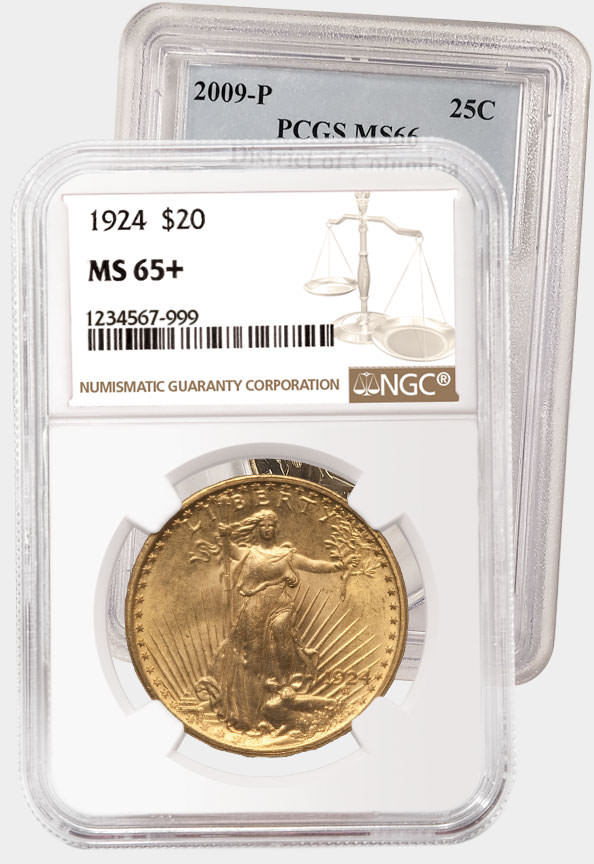NCS Conservation: Coins from Poland Reveal Their True Colors
Posted on 10/12/2021
Numismatic Conservation Services™ (NCS®) uses a variety of proprietary techniques to remove harmful contaminants, stabilize and protect a coin's surfaces and, in many cases, improve a coin's eye appeal. After coins are conserved by NCS, they are seamlessly transferred to Numismatic Guaranty Company™ (NGC®), an independent affiliate of NCS, for grading and encapsulation.
Below are a few highlights of coins that were recently conserved by NCS and graded by NGC.
Years of being in holders that are less than ideal for long-term storage can lead to the development of some dangerous residues. This silver Poland 1830 1 Zloty coin spent a considerable amount of time in poor long-term storage conditions. As a result of this, the development of a dull orange residue as well as an oily bright green residue indicative of PVC was allowed to flourish. If left unchecked, these residues can lead to irreversible damage to the surface of a coin.
After careful conservation by NCS, much of the original color was able to be seen on this important Polish coin, giving the coin a very pleasing natural look. Fortunately, the residues had not adversely affected the coin surface. Following successful conservation, this coin was able to grade numerically with NGC.
Coins with a high copper alloy content can develop some unique types of residues after decades of poor long-term storage. A dark waxy residue had developed in the recesses of the design on this 1793 Poland Grosz, prompting its submission for professional conservation. The conservators at NCS are able to work on copper coins and were able to remove the dark residue from this attractive 18th century copper coin, leaving an even brown color. Following conservation, this coin was able to grade numerically with NGC.
Even fairly recent coins can exhibit the ill effects of poor long-term storage schemes. This unusually shaped square coin (known as a "Klippe" from historical emergency siege coinage that appeared in this shape) was submitted to NCS to address a white residue that had appeared in spots. This particular Klippe was issued in Poland commemorating 10 years of the circulation of the new Zloty. Careful conservation work on modern coins like this must be taken to keep from damaging the surfaces underneath as residue is removed. Conservation was successful for this unusual commemorative and the piece was able to grade very well with NGC.
For more information about NCS, visit NGCcoin.com/NCS.
Stay Informed
Want news like this delivered to your inbox once a month? Subscribe to the free NGC eNewsletter today!












